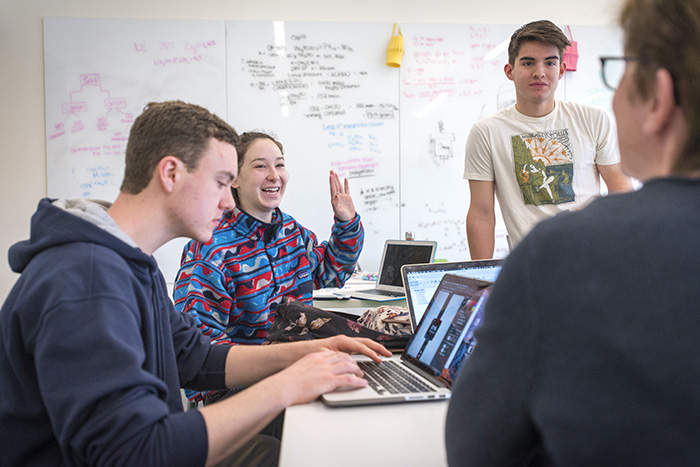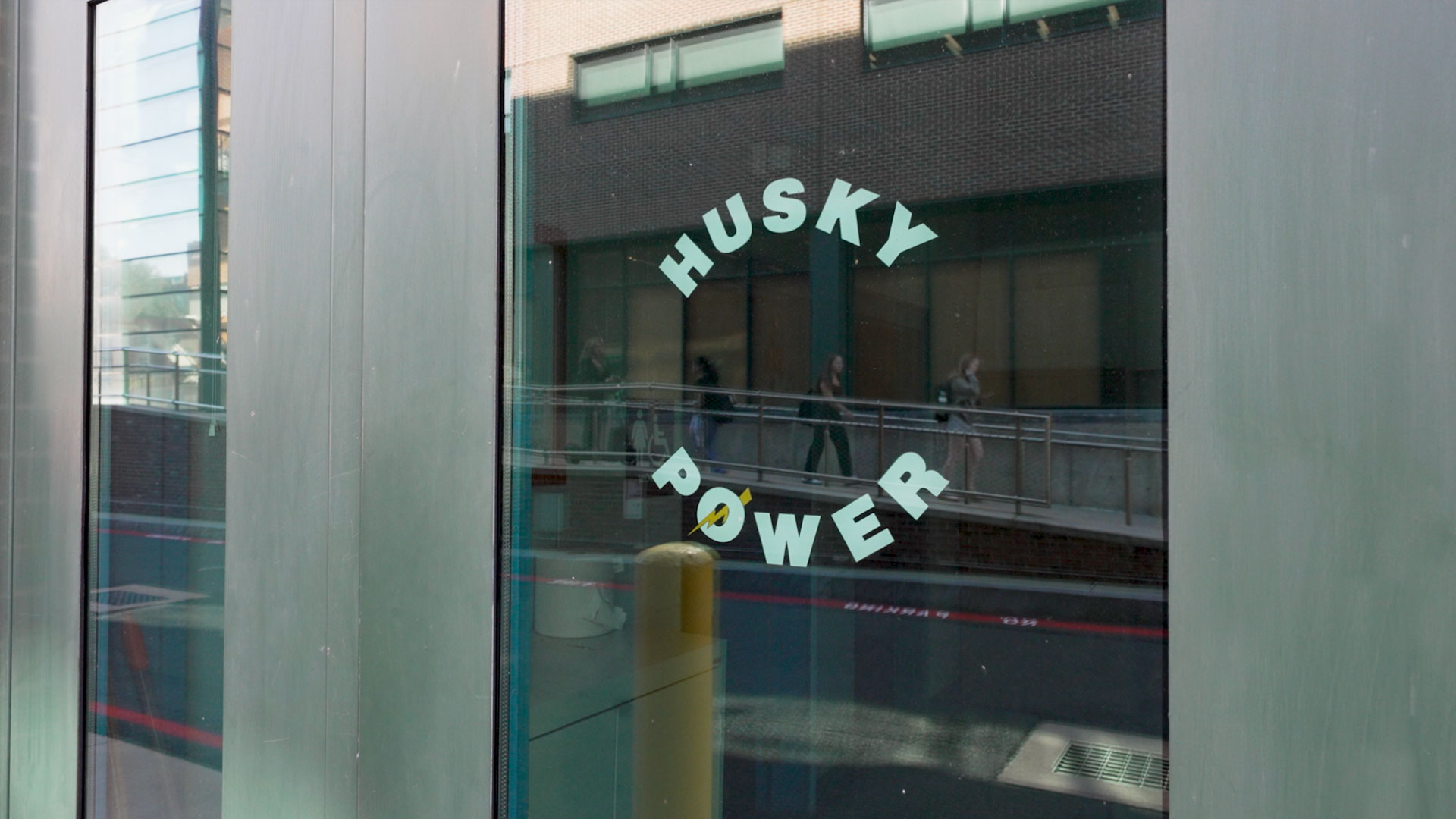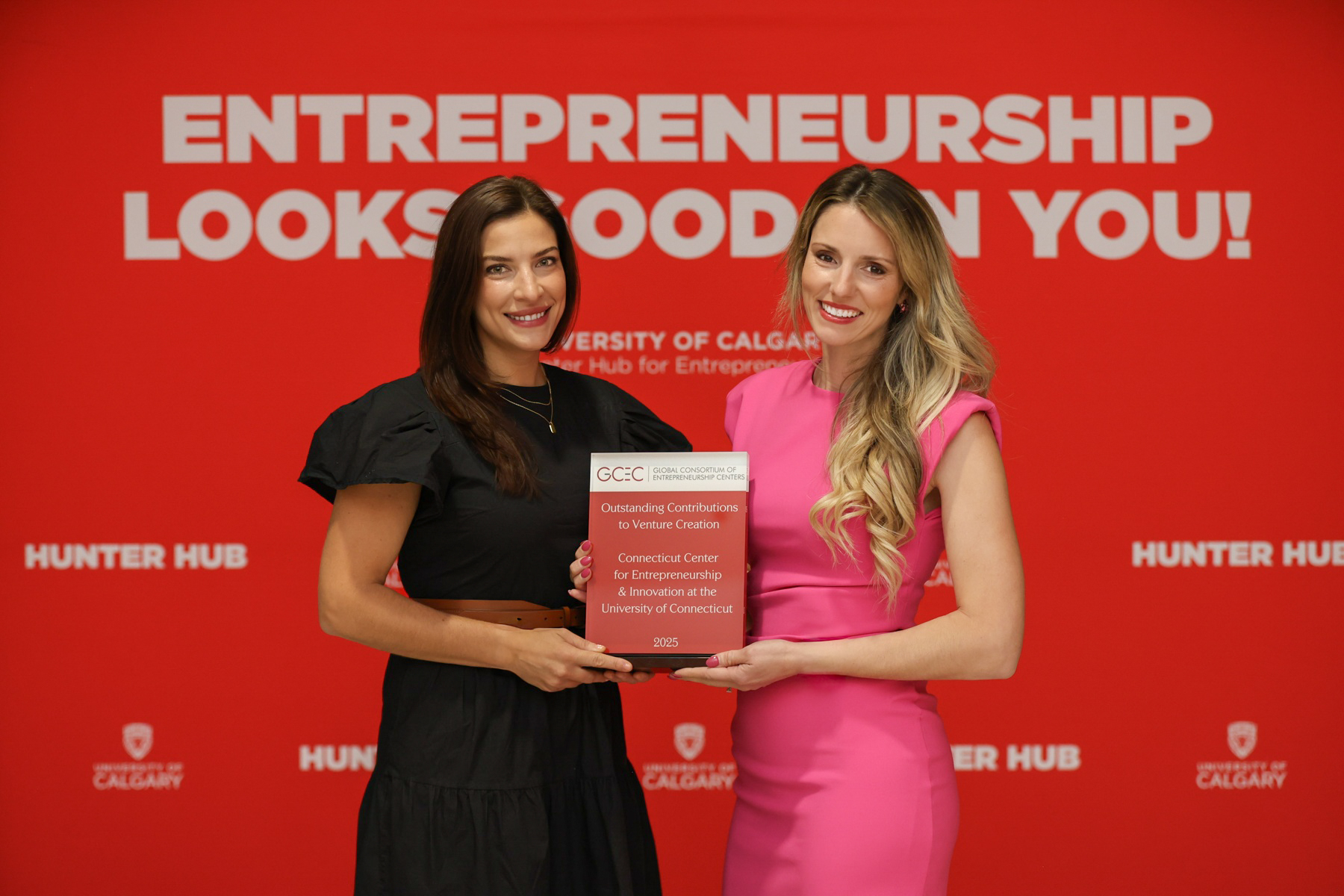More than 80 UConn students took part in a 24-hour hackathon this past weekend to come up with solutions to problems associated with allergies and anaphylaxis – an acute allergic reaction to a toxin or foreign substance.
HackUConn 2017 was held in the new NextGen CT Hall including a state-of-the-art makerspace, beginning Friday evening and continuing through Saturday.
“In just our second year, this event grew three fold to nearly 100 participants including innovators, outside sponsors, mentors, and judges. I think it’s indicative of the growing interest in entrepreneurship at UConn,” said Justin Hall, the president of the UConn Entrepreneurship and Innovation Society which is a student run club and one of the event organizers.
The students came from a range of different disciplines and worked together in self-forming teams. Student innovations encompassed hardware, software, and business models. Their solutions ranged from smart epi-pen devices to a food allergy app. Four of the 14 teams won prizes.
“My favorite was probably Epiping,” Hall said. “They created an emergency notification system, so that when the cap on an epinephrine injector was pulled, it automatically sent a text to emergency responders and a preset list of contacts.”
Another innovation was a smart home application that controlled an air filter so it’s only active when necessary, lowering the operating cost of air purification units.
Along with the Innovation Society, the event was also organized by the Entrepreneurship and Innovation Consortium, with lead sponsor KeepSmilin4Abbie Foundation, whose mission is to stop anaphylaxis. That sponsorship led to a number of epinephrine injector innovations. Epinephrine injectors are used to control allergic reactions and stop anaphylaxis.
Kathy F. Rocha, managing director of the Consortium and advisor to the Innovation Society, said HackUConn is a good example of the entrepreneurial spirit that is being fostered in UConn students.
“HackUConn is a part of our efforts to teach students about entrepreneurship through actions. By creating innovations that could save thousands of lives, these students are internalizing the application and value of innovation and entrepreneurship. The HackUConn experience could be the inspiration for some of the students to develop new products or companies in years to come” Rocha said.
Click Here to view a gallery of the event.



